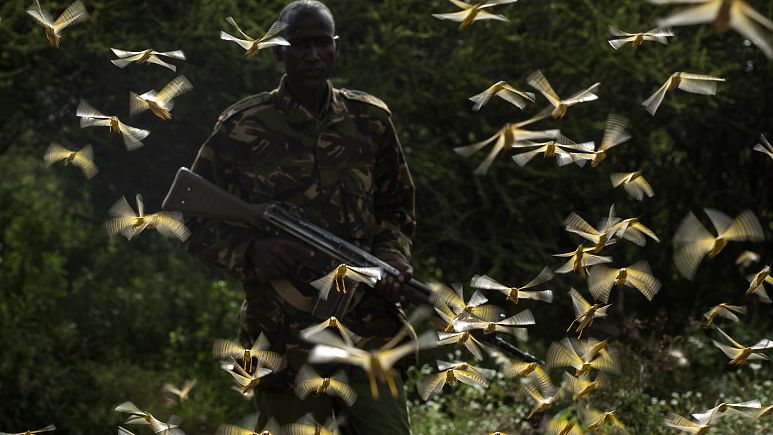UN warns of humanitarian disaster if locust swarms aren't stopped

The world has just weeks left to act before an upsurge in locusts in the Horn of Africa becomes a full-blown plague.
But that warning from the United Nations is falling on deaf ears as an appeal for some €70 million in emergency funding is still far short of its goal.
Billions of locusts have been swarming across the Arabian peninsula and East Africa in one of the most devastating outbreaks in decades. Swarms can eat the same amount of food as tens of thousands of people every day -- putting crop production, food security and millions of lives at risk.
Poverty and migration
Euronews spoke to Daniele Donati, Deputy Director, Emergency and Rehabilitation Division at the UN's Food and Agriculture Organization in Rome:
"From now to June, the population of locusts can increase by 400 times, very easily. And if the overall operation of control from now to the end of the year remains underfunded, unsuccessful for any reason whatsoever, we may shift from upsurge in to plague. Plague means that the presence of locusts in the affected areas will spread over several years - two or three, easily.
"And in that case, the impact on poverty, the impact on internal migrations can be particularly important."
The head of another UN agency, the World Food Program, took to social media on Thursday to urge governments to act now.
"Do nothing and @WFP will need...[$1.1B] to feed 13M+ people devastated by the loss of their crops and livelihoods!"